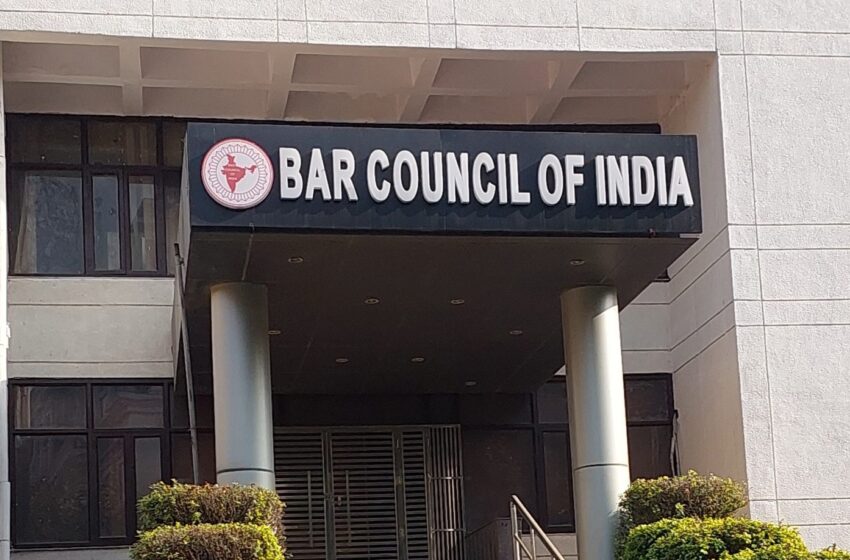
BCI moves Delhi HC against single judge’s order permitting Korean citizen to enrol with BCD
New Delhi, Oct 18 (IANS) The Bar Council of India (BCI) on Wednesday moved the Delhi High Court against a single-judge Bench’s order permitting a South Korean national to enrol as an advocate in India.
On May 30, Justice Yashwant Varma had allowed Daeyoung Jung’s plea and directed the BCI to allow his application for enrolment with the Bar Council of Delhi (BCD).
Opposing Justice Varma’s order, BCI’s counsel Senior Advocate Manan Kumar Mishra argued that this case has ramifications and far-reaching consequences. A Division Bench of Chief Justice Satish Chandra Sharma and Justice Sanjeev Narula asked: “What dis-entitles him from registration?”
It is the BCI’s case that Jung is a citizen of South Korea and Mishra referred to Section 24 of the Advocates Act.
The Bench asked, “Are the citizens of India allowed to practise law in South Korea?” It further said that Jung was a foreigner, who acquired a law degree in India and that is the whole point in this case.
Responding to this, Mishra said, “This is the issue that is to be decided by the State Bar Council and the Bar Council of India. Simply on the certificate from the National Bar Association of South Korea, we have been directed to enrol him. The reciprocity is the basis of enrolment, which is mentioned under Section 47 of the Advocates Act. It has also been wrongly interpreted by the learned single judge.”
The Bench then said, “If Indian citizens are allowed to practise law in South Korea, you don’t have any case. If the Korean government rules otherwise, then you do have a case”. It added: “Hold an inquiry and bring it to us. Counsel prays for six weeks, therefore he is granted six weeks time to submit appropriate documents to establish that Indian citizens even though they have acquired qualification in South Korea are not permitted to be enrolled in South Korea.”
Now, the matter is listed for hearing next on December 18.
While allowing Jung’s plea, Justice Varma had said, “The position which emerges is while duly qualified citizens of India are undoubtedly entitled to apply for enrolment, the rights of foreign nationals are made contingent upon the state bar council being satisfied that Indian nationals are conferred an identical right to pursue legal profession in that country. In the absence of a nationality restriction clause being found to exist in a foreign nation, its citizens would be entitled in law to apply for enrolment, subject of course to them being compliant with the other parts of Section 24.”
Jung had approached the high court after both BCD and BCI had rejected his application and representation for enrolment, respectively. It was Jung’s case that he owns a degree in law from an Indian institution and therefore BCI’s decision to not enrol him as an advocate on the rolls of BCD was wrong, the court said.
On the other hand, BCI’s stand was that once the petitioner is enrolled as an advocate and happens to engage in professional misconduct, no action can be taken against him if he leaves Indian territory. The petitioner, however, stated that when an Indian national is allowed to practise in Korea after obtaining a degree in that country, as per Section 24 of Advocates Act, a Korean citizen should also be allowed to practise in India after studying in India. As long as the right of the citizens of India who hold the requisite qualification to practise law in a foreign nation is preserved and no discriminatory measures are adopted in the foreign nation, the nationals of that country would clearly be entitled to seek enrolment in terms of the proviso to Section 24(1)(a), the court noted.
The BCI also claimed that if the petitioner is enrolled, it would pave the way for entry of people of foreign origin into the Indian Bar, which is unprecedented.
The foreign national had moved to India with his parents at the age of 11 and lived here continuously till he graduated from the NALSAR University in 2016.
